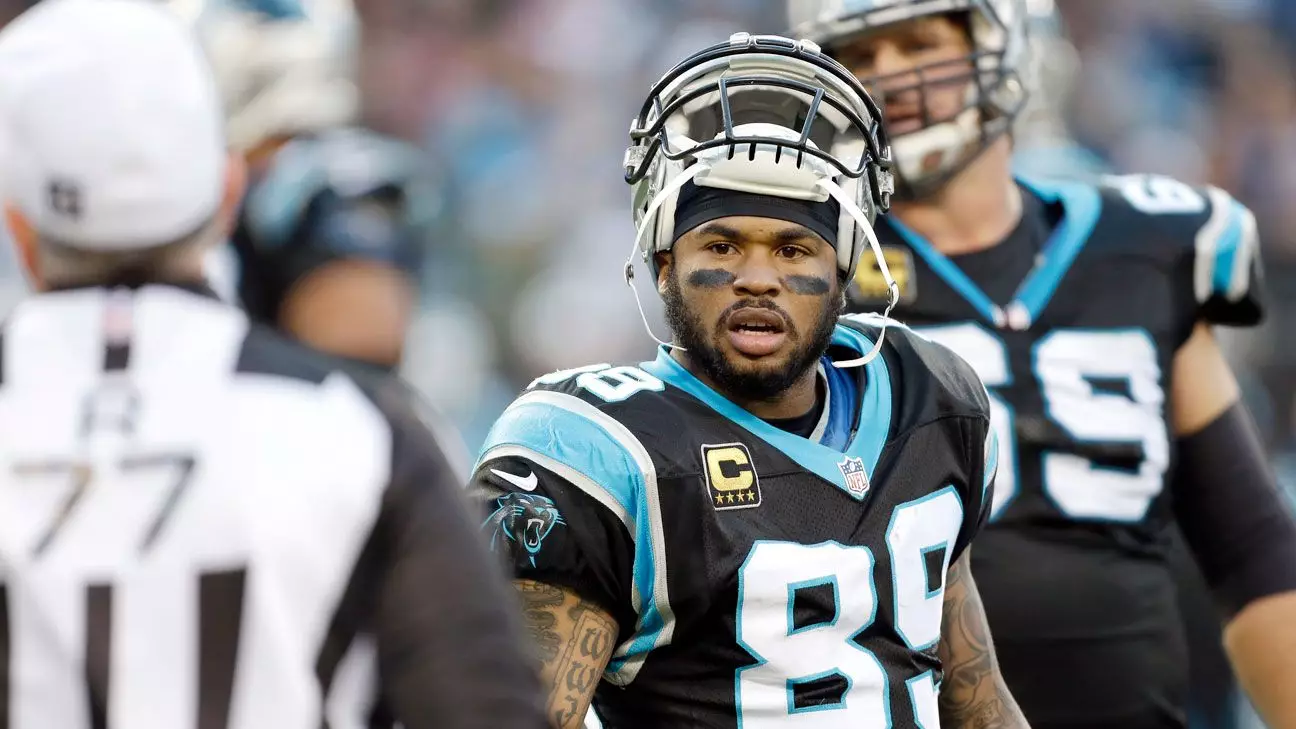In the world of professional sports, few narratives are as textured and complex as those that emerge from the tumultuous relationships between teammates. Recent comments by former Carolina Panthers quarterback Cam Newton have reignited a debate that sits at the crossroads of personal accountability, team dynamics, and the nuances of success within the NFL. Former Panthers wide receiver Steve Smith Sr., who has long been synonymous with the franchise, did not shy away from voicing his discontent regarding Newton’s remarks during a recent podcast appearance.
On the “Travis Hunter Show,” Newton reflected on his experience entering the league as the Panthers’ No. 1 overall draft pick in 2011. He described his new team as a collection of “losers,” characterizing the franchise’s mindset prior to his arrival. While he framed this narrative as a wake-up call for aspiring athletes like Hunter, his words have drawn considerable ire from former teammates who feel that such labels dismiss the hard work and dedication of those who came before him. This sentiment was poignantly captured by Smith, who reacted with a mix of anger and disappointment, emphasizing that labeling an entire locker room as “losers” disregards the complexities of team culture and individual growth.
Newton’s comments are not entirely unwarranted, as the Panthers indeed finished the 2010 season with a miserable 2-14 record. However, attributing the franchise’s struggles solely to the mindset of its players oversimplifies the myriad factors at play, including inconsistent coaching, injuries, and a lack of cohesive strategy. The question arises: can one individual’s presence truly redefine an entire organization?
In a series of emphatic responses on social media, Smith articulated his dissatisfaction with Newton’s characterization of their shared past. His frustration was not merely a matter of defending the honor of his former teammates; rather, it underscored a larger theme within professional sports—the collective effort required to build a winning culture. Smith’s assertion that “53 man locker room – 1 = 52 losers” serves as an essential commentary on the nature of teamwork. It highlights an inherent contradiction in Newton’s remark: teams are built on collaboration, and the idea of individual blame undermines the synergy necessary for success.
Moreover, Smith’s criticism sheds light on the delicate dynamics of a team environment. Athletes grapple not only with their roles but also with the expectations and pressures surrounding them. By labeling his former teammates as “losers,” Newton risked alienating not only the individuals who dedicated themselves to a shared goal but also tarnishing the team’s legacy. As Smith pointed out, no one is without fault, and the journey towards success is riddled with both setbacks and personal growth opportunities.
The clash between Smith and Newton serves as a microcosm of a larger narrative regarding accountability in professional sports. Athletes often find themselves in the spotlight, and their words possess the power to shape perceptions, influence fan loyalty, and create rifts within a community that thrives on unity. The backlash against Newton’s comments speaks to a desire for respect and recognition among peers; the essence of sport lies in collaboration, sacrifice, and a shared ambition to rise together.
Moreover, such exchanges form a vital part of the larger sports culture where athletes are encouraged to examine their relationships with teammates, coaches, and the organizations they represent. Smith’s call for a more respectful discourse is an invitation for future athletes to reflect on their narratives and acknowledge the multifaceted efforts of those beside them.
As the dust settles from this latest exchange, it is clear that the relationship between Smith and Newton is emblematic of a complex interplay between individual success and collective responsibility. While Newton ushered in a new era for the Panthers, Smith’s legacy reminds fans and players alike that every victory is built on the efforts of many. In the end, sports reflect life—filled with ups and downs, triumphs and tribulations, and most importantly, the shared stories of those who define the journey.


Leave a Reply